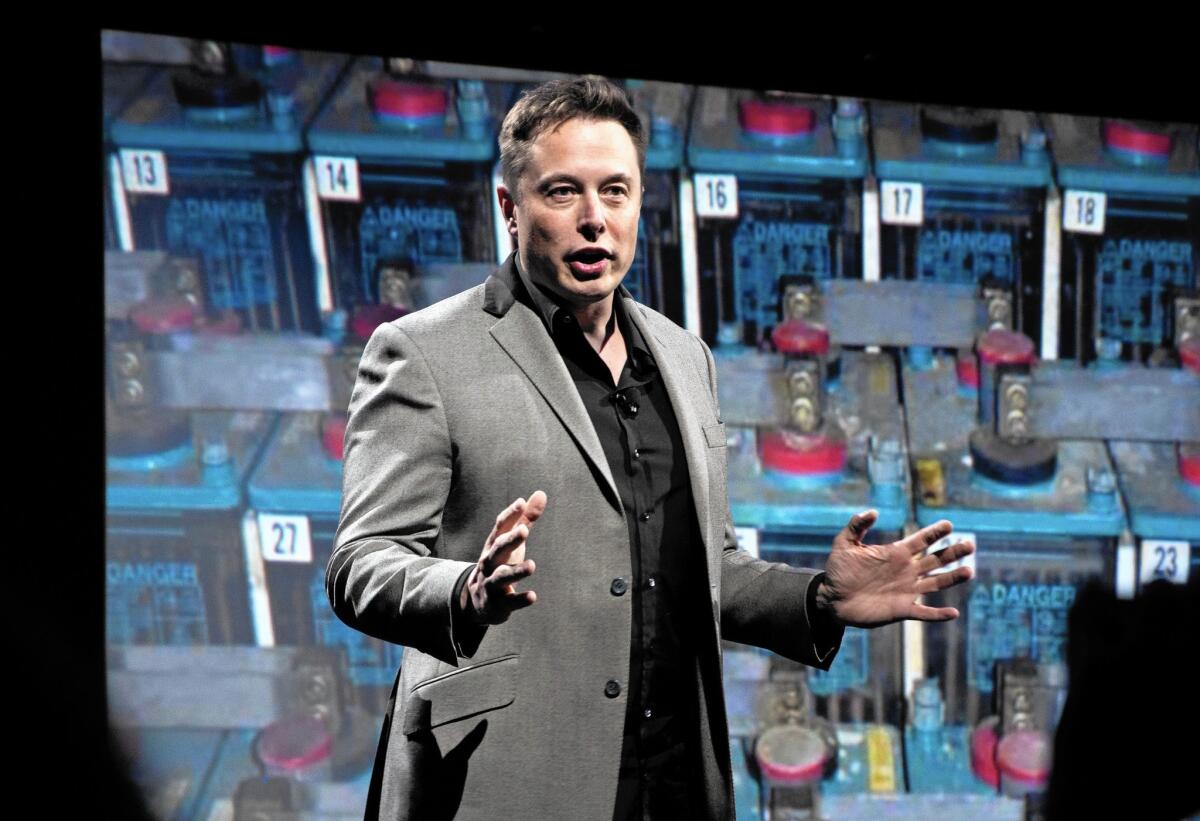U.S. billionaires are done with Social Security taxes for 2021, but you’ll pay all year

- Share via
For the vast majority of American workers, the imminent arrival by mail of their annual W-2 forms listing income and tax payments for 2020 carry a reminder that they’ll be paying their Social Security tax all year.
For a handful of the richest Americans, however, that particular burden is already over. Among them are more than 4,000 who are likely to earn more than $10 million this year, or about $2,400 every daylight hour of the workday.
They effectively paid their Social Security tax for the entire year by the time they started work Jan. 4, the first workday of 2021.
Some high earners will stop paying before their hangover headache hits in the wee hours of New Year’s Day.
— Teresa Ghilarducci, New School
About 200 or so others — earners of more than $50 million and income averaging some $90 million — effectively covered their entire Social Security obligation by about noon on New Year’s Day. That’s the point at which their income reached $142,800, the income cap for 2021.
These figures come from economist Teresa Ghilarducci of the New School, who issues the estimate every year at this time.
As Ghilarducci pointed out on New Year’s Eve, “Some high earners will stop paying before their hangover headache hits in the wee hours of New Year’s Day.”
That’s as vivid an illustration you’ll find of the scale of economic inequality in America today. About 94.6% of all Americans will pay Social Security payroll taxes on their income all year at a rate of 12.4%, evenly split between employee and employer.
All Washington seems to be buzzing this week over a single question: Is Sen.
The rest effectively pay a lower rate, since their wage income is exempt above the cap. Taxpayers reporting, say, $5 million in wage income pay an effective rate of 0.18% on their half of the Social Security levy.
Ghilarducci’s goal in her annual reckoning is to underscore how economic inequality has undermined the fiscal bedrock of America’s most important anti-poverty and social insurance program.
That’s because the growth of incomes at the top end of the economic ladder has placed an increasing percentage of taxable covered earnings outside the program’s reach.
The percentage of taxable earnings fell to about 82% in 2017 from 90% in 1982, the Congressional Research Service reported last year. Restoring that share to 90% by raising the payroll tax cap would produce about $95 billion a year in additional tax revenue, or about 8%, by 2028, according to the Congressional Budget Office. That would reduce the program’s long-term revenue shortfall by about one-fifth.
Going further, by eliminating the payroll tax cap entirely, would make Social Security indisputably solvent for at least 40 years, according to the program’s chief actuary.
Ghilarducci’s figures aren’t exact. Because of the lag in reporting of wage and income statistics by the Internal Revenue Service and Social Security Administration, she’s using 2019 data. (Social Security won’t report 2020 income data until October.)
Indications are, however, that during the plague year of 2020 the rich got richer, while the working class struggled.
Moreover, the payroll tax is levied only on earned income — that is, wages but not stock gains or dividends. Since the highest-income taxpayers typically collect half their income or more from such unearned income, they get an even bigger break on Social Security taxes.
Social Security advocates are nervous about President-elect Joe Biden. Should they be?
Some corporate executives do even better than that. Consider Sundar Pichai, chief executive of Alphabet, the parent of Google. Pichai’s compensation of $280.6 million made him the country’s best-paid corporate CEO in 2019.
But only $650,000 of that sum was in salary. The rest was in stock grants of $276.6 million and charges of about $3.35 million for personal use of company aircraft — none of it subject to Social Security taxes. Pichai’s effective Social Security payroll tax rate on his 2019 income: 0.003%.
A few words about Social Security taxes. They’re distinct from federal income taxes, but they constitute the larger federal tax bite for about two-thirds of all taxpayers; the crossover point at which people pay more income than Social Security taxes is about $200,000 in income.
They’re also highly regressive, obviously, since the tax rate will decline once income exceeds $142,800. By contrast, income tax rates are progressive, rising with higher income. (A separate payroll tax of 2.9% for Medicare is collected on all earned income, without a cap.)
The payroll tax is separate from income tax because Social Security’s drafters saw value in endowing it with an independent revenue stream. All contributors to the program are eligible to receive benefits, but they’re generally progressive — worth more as a percentage of income to lower-income workers than the wealthy.
That doesn’t justify giving the wealthy a tax benefit on this scale. Part of Social Security’s expenses go to finance the so-called legacy debt. That’s the debt the program incurred in its earliest decades, when it paid benefits to recipients who hadn’t paid enough in payroll contributions to finance their own retirements.
Congress and the creators of Social Security made the decision in 1935 to ensure that all Americans would receive benefits, regardless of their contributions. The program is still paying off that debt and will continue to do so into the limitless future. Increased inequality, however, means that the wealthy are allowed to shoulder an ever shrinking portion of that debt.
Discussions of Social Security’s finances aren’t theoretical for the roughly 65 million Americans who receive benefits, whether as retirement stipends or survivors or the disabled.
The program’s enemies, mostly Republicans and conservatives, have long used its putatively shaky fiscal condition as an argument for cutting benefits. Congressional Republicans, led by soon-to-be-former Senate Majority Leader Mitch McConnell (R-Ky.) have asserted that Social Security and Medicare — “entitlements,” as they cynically call them — are the cause of the federal deficit.
Officials are ‘exploring’ a plan that allows workers to get up to $10,000, but requires them to pay back funds by deferring Social Security benefits.
This while they congratulate themselves for having enacted a massive tax cut for corporations and the wealthy that is blowing a 10-year hole of more than $1.5 trillion in the federal budget. Is it any wonder that Republicans have talked about gutting Social Security benefits “behind closed doors”?
It has become part of Democratic Party orthodoxy, by contrast, to observe that the best way to shore up Social Security is to raise or remove the tax cap rather than cut benefits. They also favor expanding benefits and increasing stipends, especially for lower-income retirees. Those ideas have been endorsed by President-elect Joe Biden, and with the advent of Democratic control of both houses of Congress, they’re finally within reach.
That’s a good thing. America’s retirement resources have become heavily skewed toward high-income households, in part because of the disappearance of traditional corporate pensions and income stagnation that makes it difficult for working families to save for retirement through 401(k) plans and other options.
Over the last 40 years, incomes of the top 1% of American households have risen by about 160%, according to the labor-oriented Economic Policy Institute, and those of the bottom 90% by only 26%.
The COVID-19 pandemic almost certainly exacerbated that trend. According to the Institute for Policy Studies, the wealth of all U.S. billionaires increased by $1.064 trillion, or 36%, from mid-March last year to the first week of December. The top five — Jeff Bezos, Bill Gates, Mark Zuckerberg, Warren Buffett and Elon Musk — gained 78%.
Meanwhile, the average U.S. household faced an ever more daunting struggle, largely due to pandemic-related job losses accompanied by congressional dithering over an economic relief package in the last half of the year.
Throughout all these tribulations, Social Security has remained a bulwark of household finances. What better time than now to shore up its own balance sheet by making millionaires and billionaires pay their fair share?
More to Read
Inside the business of entertainment
The Wide Shot brings you news, analysis and insights on everything from streaming wars to production — and what it all means for the future.
You may occasionally receive promotional content from the Los Angeles Times.













